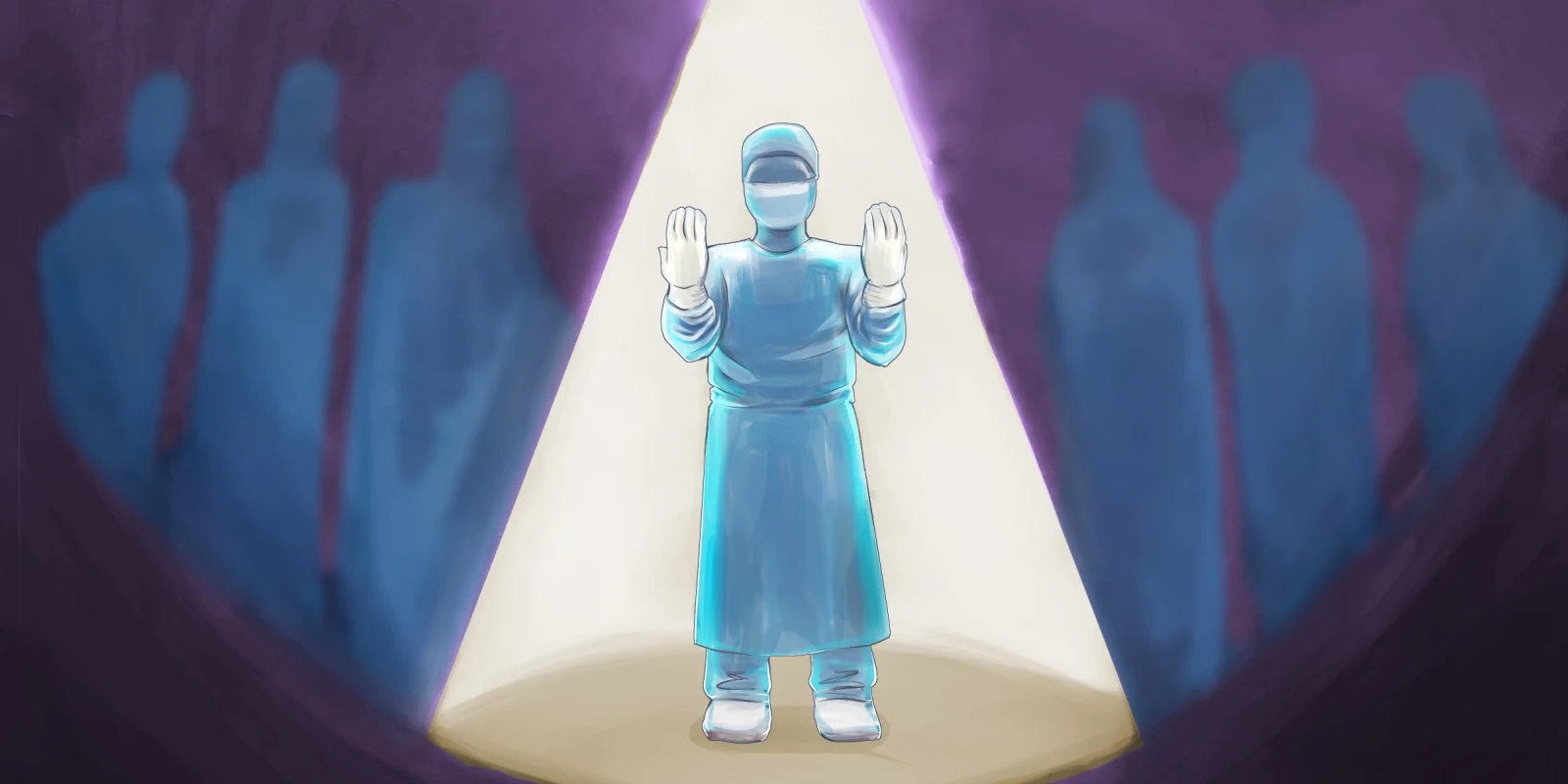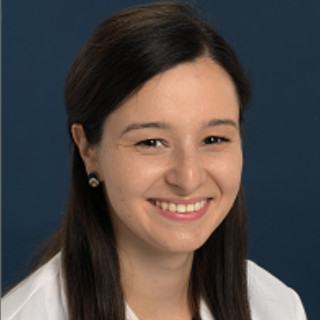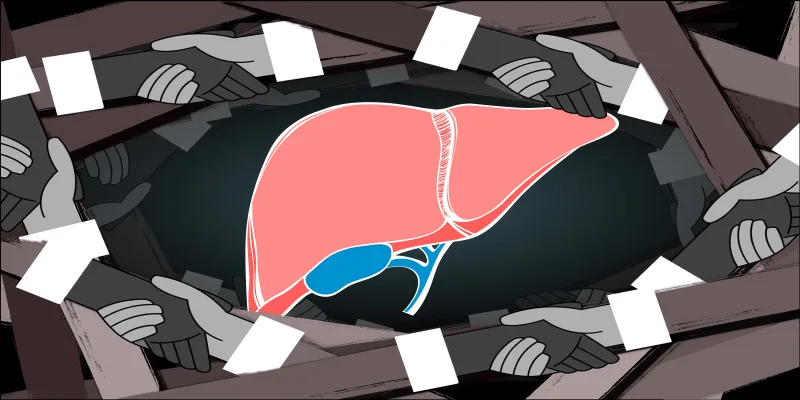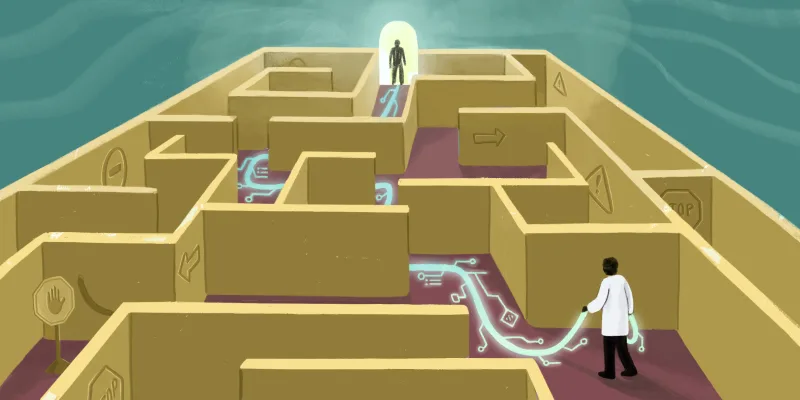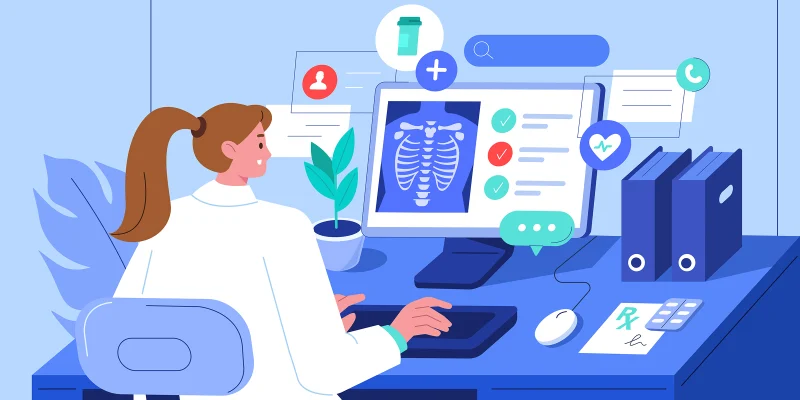“Listen to the music, Kathleen. It will tell you what to do.” The spotlights turn on, and the house lights go down. The blue curtains that surround us have risen. The music starts to play. I hear an upbeat series of high pitched eighth notes, followed by a low half note. “Got it?” I nod. I have watched this performance many times before from the audience, but never had a role until now.
My chairman, a gynecologic oncologist, hands me the bipolar sealing device and tells me to slide it through the laparoscopic port site closest to me. I am about to perform my first salpingo-oophorectomy. I grasp the infundibulopelvic ligament, and start to perform the choreography. I hear the music coming from the instrument telling me how to move. In my head, I am a prima ballerina, chasse, chasse, grand jete-ing my way across stage, but in reality, I am an ob/gyn intern, burn, burn, cutting my way down the mesosalpinx. I’m now 2 cm from the uterine cornu. The anesthesia machine whirs and beeps in the background as I amputate the tube and ovary, place it into a bag inside the cavity, and slide it out through my port.
If you had asked me when I was little what I wanted to be when I grew up, I would have said, “on Broadway!” and enthusiastically flashed you a pair of jazz hands. I loved the thrill of being on stage. The lights, the applause, the feeling of being “on.” Several years of vocal lessons later, paired with being cast as “Townsperson #2,” just one too many times for my teenage self-esteem, I realized a career in “the theatre” was just not in the cards for me. So, I did what everyone else in my family did and went to medical school.
Fast forward through many hours spent studying to my third year of medical school. Just as athletes have different abilities and levels of natural talent for sports, so do medical students. Some of my classmates had the inherent ability to empathetically counsel a patient on the psych floor, others could calculate someone’s anion gap on the fly, and I learned all the years I had spent making friendship bracelets at musical theater summer camp in between rehearsals meant I could suture. I fell into the dance of the OR easily. I loved the routine and the theatrics of it all. The scrub followed by backing into the room with my hands held aloft, awaiting the scrub tech to slip my gown and gloves on me, followed by the spin of tying yourself in. I felt as if I was putting on my costume in preparation for a performance. The “time out,” where everyone pays close attention to the surgeon, as he or she states the name of the patient, procedure, and laterality always reminds me of the overture. The dance of draping, handing off wires, and docking the robot, everything in perfect unison with our circulating nurses. In reality, being on stage and operating are not so different. A team must perform in a high stakes environment in which someone is expecting flawless work, and adapt to the conditions of the environment of each individual performance.
I am now a resident physician learning to operate. As one of the gyn-onc residents this month, I enjoy the time spent in the OR with my chair, because like a conductor, he presides over the process with discipline and, at times, an iron fist. Patient safety always comes first, and I know I will graduate as a competent and safe surgeon. He knows which notes to hit, when to go fast, and when to slow down. I often wonder about the ethical ambiguity of learning to operate, but I know that my hands are an extension of his, and he often places his large hands over my small ones or takes over the robotic controls from the teaching console to show me the exact bite or maneuver that he wants me to do. Just as part of being a conductor is knowing when your musicians have earned a solo, part of being an attending surgeon is knowing when your residents are ready to take on more complex procedures.
I hand the specimen off to our circulating nurse, who bags it up for pathology. We inspect the abdomen and pelvis one last time to assure hemostasis, and request the house lights back on. The CRNA raises the bed so I can close the laparoscopic ports, and with a final flourish, releases the blue drape. The curtains are down, and her surgery is complete. There is no round of applause here, but as we roll to the PACU and our patient starts to wake up, she squeezes my hand and whispers, “Thanks, Doc.” Even as an adult, I will always have a tiny bit of longing to be on the stage belting out showtunes, but I know that the “operating theater” is where I am truly at home.
What did you want to be before you went into medicine? Share your alternate career paths in the comments.
Kathleen Ackert is a resident physician in obstetrics & gynecology at St. Luke’s University Health Network. She is a graduate of the Philadelphia College of Osteopathic Medicine and Siena College. When she is not in the hospital, she can be found in coffee shops writing narrative medicine pieces or eating in restaurants that offer low-lit dining experiences. She enjoys exploring the latest fitness craze, watering her house plants, and instagramming pictures of fancy lattes at @caffeinewithkathleen. She is a 2021—2022 Doximity Op-Med Fellow.
Illustration by April Brust
